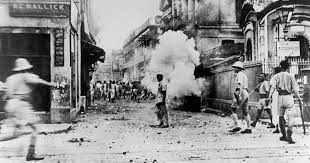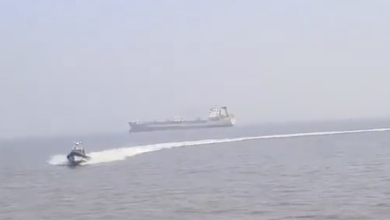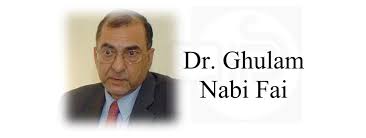 The dead cannot cry out for justice; it is the duty of the living to do so for them. The Jammu Massacre of November 1947 remains one of the most tragic yet under-acknowledged episodes in the history of South Asia. As British colonial rule dissolved and India and Pakistan emerged as separate nation-states, large-scale violence erupted, often targeting religious minorities in both states. The Jammu Massacre, however, stands out for its severity, scale, and implications, which extend beyond regional politics into the fabric of international relations.
The dead cannot cry out for justice; it is the duty of the living to do so for them. The Jammu Massacre of November 1947 remains one of the most tragic yet under-acknowledged episodes in the history of South Asia. As British colonial rule dissolved and India and Pakistan emerged as separate nation-states, large-scale violence erupted, often targeting religious minorities in both states. The Jammu Massacre, however, stands out for its severity, scale, and implications, which extend beyond regional politics into the fabric of international relations.
This article unpacks the massacre as an event that highlights the convergence of state-sponsored violence, demographic engineering, and communal discord, and it assesses the massacre’s enduring impact on India-Pakistan relations and the international discourse on self-determination and human rights. This form of geopolitical engineering, while specific to post-partition India, parallels other historical instances of state-driven demographic reordering, such as the Balkan Wars and the Armenian genocide.
In 1947, the princely state of Jammu and Kashmir was in a perilous position. The Hindu Maharaja, Hari Singh, hesitated to join either India or Pakistan, a stance that intensified tensions across the religiously diverse state. The Muslim-majority regions, including Jammu, had growing political movements advocating for alignment with Pakistan, owing to both demographic alignment and political sympathies. This division within the state mirrored broader patterns across the subcontinent, where communal identities were politicized amidst the ideological clash between secular nationalism and religious separatism. In the Jammu region, where Muslims comprised over 60 percent of the population, tensions mounted as the Dogra administration implemented repressive measures. These included heavy taxation on Muslim-majority districts like Poonch and the exclusion of Muslims from the local militia, exacerbating fears among the local Muslim population. Historians like Alastair Lamb and Victoria Schofield suggest that the Maharaja’s refusal to accommodate Muslim grievances or accept their demands for basic representation played a critical role in triggering the revolt in Poonch, which was met with brutal suppression.
As communal violence swept across the subcontinent, the Dogra-led state forces, allied with right-wing Hindu and Sikh groups, orchestrated systematic attacks on Jammu’s Muslims. This strategy bore the hallmarks of what international relations scholars identify as state-sponsored ethnic cleansing: a deliberate attempt by a state actor to alter demographic realities to consolidate political control. In Jammu, state forces leveraged the situation to forcibly expel or annihilate the Muslim population, ensuring demographic and political alignment with India. Reports estimate the death toll between 20,000 and 237,000 Muslims, with nearly half a million displaced. This episode of ethnic cleansing effectively altered the region’s demographics and continues to influence the geopolitical landscape, with Jammu’s Muslim population remaining drastically reduced today.
The massacre also underlines how domestic policies in post-colonial states can have far-reaching implications for regional security dynamics. The forced displacement of Muslims into newly formed Pakistan not only created a refugee crisis but also worsened the political antagonism between India and Pakistan. By entrenching religious divisions, the events in Jammu contributed to the enduring “Kashmir Question,” one of the longest-standing and most volatile territorial disputes in the world.
The Jammu Massacre also raises questions regarding the principle of self-determination, a core tenet in international law. The forcible expulsion of Jammu’s Muslims, who overwhelmingly favored alignment with Pakistan, violated their right to participate in determining the political status of their homeland. Furthermore, the continued division of Jammu and Kashmir between India and Pakistan following the 1948 ceasefire has denied these communities the opportunity for self-governance, despite repeated calls for a plebiscite under United Nations auspices.
The massacre’s legacy remains deeply tangled with the political narratives on both sides of the Line of Control (LoC). For Pakistan, the incident exemplifies a broader pattern of oppression against Muslims in Jammu and Kashmir and critiques India’s human rights record in the region. For India, acknowledging such an incident raises questions about state accountability and the secular democratic ideals it aspires to uphold.
This duality has rendered the Jammu Massacre a “frozen memory,” acknowledged by survivors and activists but seldom incorporated into official discourse. The massacre also exemplifies how historic grievances can fuel protracted conflicts. The Jammu Massacre has contributed to a broader narrative of Muslim disenfranchisement in Kashmir, fueling resentments that continue to inspire both armed resistance and nonviolent calls for justice.
The Jammu Massacre of November 1947, often referred to as an “invisible genocide”, remains a largely overlooked chapter in history. In international relations, failing to acknowledge such dark events only deepens unresolved tensions and erodes trust. For Jammu’s Muslims, remembrance is a form of resistance against erasure, as the massacre highlights the perils of ethno-nationalism. If regional stability is to be achieved, a balanced historiography that includes the suffering of all communities, and a concerted effort toward truth and reconciliation, must guide future diplomatic efforts. The Jammu Massacre should not remain a hidden chapter but a reminder that justice and historical clarity are indispensable to achieving enduring peace in Jammu and Kashmir.
 The author is Director of Research and Human Rights Desk at Kashmir Institute of International Relations (KIIR). She can be contacted at: mehr_dua@yahoo.com
The author is Director of Research and Human Rights Desk at Kashmir Institute of International Relations (KIIR). She can be contacted at: mehr_dua@yahoo.com








